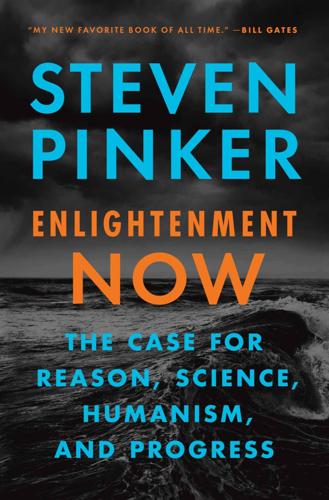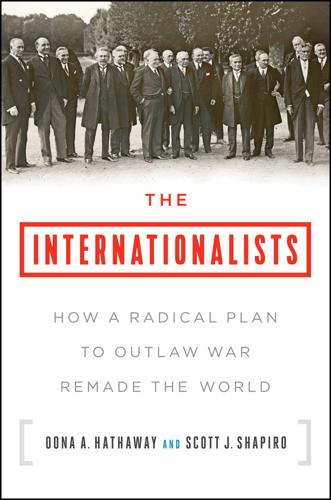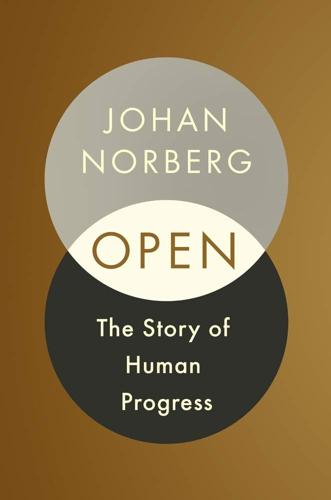
The Better Angels of Our Nature: Why Violence Has Declined
by
Steven Pinker
Published 24 Sep 2012
If so, interstate war among developed countries would be going the way of customs such as slavery, serfdom, breaking on the wheel, disemboweling, bearbaiting, cat-burning, heretic-burning, witch-drowning, thief-hanging, public executions, the display of rotting corpses on gibbets, dueling, debtors’ prisons, flogging, keelhauling, and other practices that passed from unexceptionable to controversial to immoral to unthinkable to not-thought-about during the Humanitarian Revolution. Can we identify exogenous causes of the new humanitarian aversion to war among developed countries? In chapter 4 I conjectured that the Humanitarian Revolution was accelerated by publishing, literacy, travel, science, and other cosmopolitan forces that broaden people’s intellectual and moral horizons. The second half of the 20th century has obvious parallels. It saw the dawn of television, computers, satellites, telecommunications, and jet travel, and an unprecedented expansion of science and higher education.
…
Źiźek, Slavoj Zola, Émile ALSO BY STEVEN PINKER Language Learnability and Language Development Learnability and Cognition The Language Instinct How the Mind Works Words and Rules The Blank Slate The Stuff of Thought EDITED BY STEVEN PINKER Visual Cognition Connections and Symbols (with Jacques Mehler) Lexical and Conceptual Semantics (with Beth Levin) The Best American Science and Nature Writing 2004 Table of Contents Title Page Copyright Page Dedication Epigraph Preface Chapter 1 - A FOREIGN COUNTRY Chapter 2 - THE PACIFICATION PROCESS Chapter 3 - THE CIVILIZING PROCESS Chapter 4 - THE HUMANITARIAN REVOLUTION Chapter 5 - THE LONG PEACE Chapter 6 - THE NEW PEACE Chapter 7 - THE RIGHTS REVOLUTIONS Chapter 8 - INNER DEMONS Chapter 9 - BETTER ANGELS Chapter 10 - ON ANGELS’ WINGS NOTES REFERENCES INDEX ALSO BY STEVEN PINKER Table of Contents Title Page Copyright Page Dedication Epigraph Preface Chapter 1 - A FOREIGN COUNTRY Chapter 2 - THE PACIFICATION PROCESS Chapter 3 - THE CIVILIZING PROCESS Chapter 4 - THE HUMANITARIAN REVOLUTION Chapter 5 - THE LONG PEACE Chapter 6 - THE NEW PEACE Chapter 7 - THE RIGHTS REVOLUTIONS Chapter 8 - INNER DEMONS Chapter 9 - BETTER ANGELS Chapter 10 - ON ANGELS’ WINGS NOTES REFERENCES INDEX ALSO BY STEVEN PINKER
…
Table of Contents Title Page Copyright Page Dedication Epigraph Preface Chapter 1 - A FOREIGN COUNTRY Chapter 2 - THE PACIFICATION PROCESS Chapter 3 - THE CIVILIZING PROCESS Chapter 4 - THE HUMANITARIAN REVOLUTION Chapter 5 - THE LONG PEACE Chapter 6 - THE NEW PEACE Chapter 7 - THE RIGHTS REVOLUTIONS Chapter 8 - INNER DEMONS Chapter 9 - BETTER ANGELS Chapter 10 - ON ANGELS’ WINGS NOTES REFERENCES INDEX ALSO BY STEVEN PINKER ALSO BY STEVEN PINKER Language Learnability and Language Development Learnability and Cognition The Language Instinct How the Mind Works Words and Rules The Blank Slate The Stuff of Thought EDITED BY STEVEN PINKER Visual Cognition Connections and Symbols (with Jacques Mehler) Lexical and Conceptual Semantics (with Beth Levin) The Best American Science and Nature Writing 2004 VIKING Published by the Penguin Group Penguin Group (USA) Inc., 375 Hudson Street, New York, New York 10014, U.S.A. • Penguin Group (Canada), 90 Eglinton Avenue East, Suite 700, Toronto, Ontario, Canada M4P 2Y3 (a division of Pearson Penguin Canada Inc.) • Penguin Books Ltd, 80 Strand, London WC2RoRL, England • Penguin Ireland, 25 St.

More From Less: The Surprising Story of How We Learned to Prosper Using Fewer Resources – and What Happens Next
by
Andrew McAfee
Published 30 Sep 2019
The cognitive scientist Steven Pinker writes that sentiment toward slavery began to change in the late 1700s with the rise of humanism, or the belief that “the universal capacity of a person to suffer and flourish… call[s] on our moral concern.” As Pinker writes in his book Enlightenment Now, “The Enlightenment is sometimes called the Humanitarian Revolution, because it led to the abolition of barbaric practices [such as slavery] that had been commonplace across civilizations for millennia.” This humanitarian revolution has been hugely successful; around the world most people now believe that “if slavery is not wrong, nothing is wrong,” as Abraham Lincoln put it in an 1864 letter. Revulsion at slavery was so strong and so widespread that the movement to abolish it gained momentum even as the Industrial Era did.
…
weighs 4.7 trillion times more than all of us: Michael Marshall, “Humanity Weighs in at 287 Million Tonnes,” New Scientist, June 18, 2012, https://www.newscientist.com/article/dn21945-humanity-weighs-in-at-287-million-tonnes/. Chapter 3: Industrial Errors “the universal capacity of a person”: Steven Pinker, Enlightenment Now: The Case for Reason, Science, Humanism, and Progress (New York: Penguin, 2018), Kindle, location 408. “sometimes called the Humanitarian Revolution”: Ibid., preview location 4117. “if slavery is not wrong, nothing is wrong”: Abraham Lincoln, letter to Albert G. Hodges, April 14, 1864, Abraham Lincoln Online: Speeches & Writings, accessed March 18, 2019, http://www.abrahamlincolnonline.org/lincoln/speeches/hodges.htm. the bloodiest in the country’s history: “Civil War Casualties,” American Battlefield Trust, accessed March 18, 2019, https://www.battlefields.org/learn/articles/civil-war-casualties.

Enlightenment Now: The Case for Reason, Science, Humanism, and Progress
by
Steven Pinker
Published 13 Feb 2018
Given that we are equipped with the capacity to sympathize with others, nothing can prevent the circle of sympathy from expanding from the family and tribe to embrace all of humankind, particularly as reason goads us into realizing that there can be nothing uniquely deserving about ourselves or any of the groups to which we belong.10 We are forced into cosmopolitanism: accepting our citizenship in the world.11 A humanistic sensibility impelled the Enlightenment thinkers to condemn not just religious violence but also the secular cruelties of their age, including slavery, despotism, executions for frivolous offenses such as shoplifting and poaching, and sadistic punishments such as flogging, amputation, impalement, disembowelment, breaking on the wheel, and burning at the stake. The Enlightenment is sometimes called the Humanitarian Revolution, because it led to the abolition of barbaric practices that had been commonplace across civilizations for millennia.12 If the abolition of slavery and cruel punishment is not progress, nothing is, which brings us to the fourth Enlightenment ideal. With our understanding of the world advanced by science and our circle of sympathy expanded through reason and cosmopolitanism, humanity could make intellectual and moral progress.
…
The Pacification Process was a fivefold reduction in the rate of death from tribal raiding and feuding, the consequence of effective states exerting control over a territory. The Civilizing Process was a fortyfold reduction in homicide and other violent crimes which followed upon the entrenchment of the rule of law and norms of self-control in early modern Europe. The Humanitarian Revolution is another name for the Enlightenment-era abolition of slavery, religious persecution, and cruel punishments. The Long Peace is the historians’ term for the decline of great-power and interstate war after World War II. Following the end of the Cold War, the world has enjoyed a New Peace with fewer civil wars, genocides, and autocracies.
…
After the Enlightenment, European countries stopped executing people for any but the most heinous crimes: by the middle of the 19th century, Britain had reduced the number of capital offenses from 222 to 4. And the countries looked for methods of execution such as drop hanging that were as humane as such a gruesome practice could pretend to be. After World War II, when the Universal Declaration of Human Rights inaugurated a second humanitarian revolution, capital punishment was abolished altogether in country after country, and in Europe today it lingers only in Belarus. The abolition of capital punishment has gone global (figure 14-3), and today the death penalty is on death row.33 In the last three decades, two or three countries have abolished it every year, and less than a fifth of the world’s nations continue to execute people.

The Internationalists: How a Radical Plan to Outlaw War Remade the World
by
Oona A. Hathaway
and
Scott J. Shapiro
Published 11 Sep 2017
According to Vattel: “If, sometimes, the furious and ungovernable soldier carries his brutality so far as to violate female chastity, or to massacre women, children, and old men, the officers lament those excesses: they exert their utmost efforts to put a stop to them; and a prudent and humane general even punishes them whenever he can.”74 What had previously been merely lamentable became criminal thanks to the new Principle of Distinction. Why armies spared civilians at this point is a matter much debated among historians. Some attribute the new rules to moral progress—either as part of the humanitarian revolution of the Enlightenment, which began to regard all human life as valuable, or the specific desire not to revisit the horrors of previous wars.75 Others situate these developments in the political milieu of eighteenth-century Europe—either because the aristocracy dominated the army and regarded wars as duels governed by the rules of chivalry,76 or because monarchs dominated the armies and treated wars as formal legal procedures governed by the dignified rules of the courtroom.77 While Vattel strained credulity when he claimed that civilians had “nothing to fear from the sword of the enemy”—unarmed civilians are never safe from armed soldiers in wartime—it was undeniable that their lot had vastly improved.78 The radical depopulation of cities and villages so characteristic of the wars of the sixteenth and seventeenth centuries ceased by the middle of the eighteenth century, as the inhabitants no longer had to flee from gangs of undisciplined soldiers who raided their homes, raped the women, and killed for sport.
…
Vattel indicates elsewhere that the laws of war could also be enforced by the retaliatory refusal to give quarter. Ibid., 3.8.141. 75. Eric Robson, “The Armed Forces and the Art of War,” in The New Cambridge Modern History, eds. G. R. Potter and G. R. Elton, Vol. 7: The Old Regime, 1713–63, ed. J. O. Lindsay (Cambridge: Cambridge University Press, 1979), 165. On the humanitarian revolution and Enlightenment humanism, see Steven Pinker, The Better Angels of Our Nature: Why Violence Has Declined (New York: Viking, 2011), 129–92. 76. Bell, The First Total War; Carl Schmitt, Theory of the Partisan: Intermediate Commentary on the Concept of the Political, trans. G. L. Ulem (New York: Telos Press, 2007), 36. 77.

Open: The Story of Human Progress
by
Johan Norberg
Published 14 Sep 2020
America soon caught up with its old colonial master Britain in technology, wealth and power, and then surpassed it. In 1800, the British economy was more than twice as large as the American one. A hundred years later, despite rapid growth in the UK, the American economy was more than twice as large as the British, and about to take over its global political role. The humanitarian revolution Other countries also started growing rapidly as they picked up open values and institutions similar to those in Britain and the US, and the technologies and business management practices these had made possible. This was the start of the Great Enrichment. It did much more than make us rich and save us from early deaths.